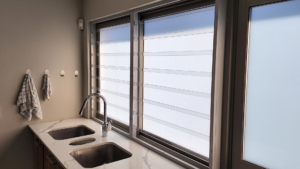Security alarms are the most significant deterrent against crime as they can keep criminals away from your property. However, there are instances where your security alarms are triggered by things that do not relate to crime. It is essential to understand why these false alarms occur and how to prevent them from happening in the future.
Security alarms are part of home security systems that are monitored mainly by a company. The company will be able to respond quickly in the event that the alarm is triggered. With smart security systems, whenever your alarm is activated, you will be notified through a phone call or text message, enabling you to deactivate the system through your phone. There are instances when there is a false alarm which is an annoyance, but if you frequently have false alarms, then when it is triggered during an actual emergency, you might not receive the necessary help required in that situation. To ensure that you reduce the number of false alarm mishaps, it is crucial to understand the causes of the triggers and how to prevent them from occurring. Below are some tips that you can follow to reduce the number of false security alarms that your home experiences.
- Cause: Pets or objects setting off motion sensors
Some motion detectors can easily be set off if they detect heat and motion. Therefore, any movable objects such as pets walking, plants swaying, curtains or balls rolling could easily set off the motion detectors.
How to prevent this:
It would help if you considered positioning your motion sensors slightly above waist level so that your pets can freely roam around. Ensure that motion sensors are not located near curtains or any other objects that move or drift. It would be beneficial if you considered choosing a pet immune motion sensor as they ignore the movement from your pets. A smart home security system can also be effective in reducing false alarms as you have the option to see the activity in your home even when you are not at home. This enables you to watch all the activities in your home from your smartphone.
- Cause: User error
User errors are one of the most known causes of false security alarms as alarms can be triggered by issues such as entering the wrong passcode too many times or the system being misused by you or the people who have access to your home such as the cleaner, babysitter or contractor.
How to prevent this:
The key to ensuring that you never enter the wrong passcode is choosing an easy to remember code; however, it should not be too easy for the burglar to guess. If you know that your memory is not the best, you can write the code down and safely store it. When entering the code, ensure that you enter the correct code and double-check it before sharing it with anyone responsible for arming or disarming the system.
- Cause: Unsecured doors and windows
This might be an obvious thing to do, but you should ensure that your doors are locked before you go to bed. Failing to secure your doors and windows can lead to triggering false alarms, especially for sensitive systems, such as the wind or rain.
How to prevent this:
Before you arm your system, you should ensure that your home’s doors and windows are closed and locked. It would be helpful if you got into the habit of checking that doors and windows are locked/closed by either pressing or jiggling them. This will also be helpful for you to detect any issues on door frames or window panes that need to be repaired.
- Cause: Inconsistent power source
There are wireless home security systems that use batteries that need to be changed or replaced occasionally. The system components might also give you a warning when the battery levels are low, but there are instances when the low the battery will trigger a false alarm. Having an unreliable or inconsistent power source can also be the trigger for false alarms.
How to prevent this:
You should regularly schedule professional check-ups to ensure that your security system is functioning correctly. The check-ups can be beneficial as the professional security tech will detect low batteries and replace them. It will ensure that you have better peace of mind regarding your home’s security as you will reduce the chances of errors occurring that might cause false alarms.
- Cause: Incorrect Installation
Some people choose to install their security systems on their own; however, there is always the added risk that they might experience installation problems in the future. When installing your home security system, all the parts must be appropriately aligned, and if they are not, they might leave you vulnerable to loss and false alarms.
How to prevent this:
Suppose you have a DIY home security system. In that case, it is advised to use a professional security company as they will assist you in properly installing the system and the general upkeep required for the security system. You should also ensure that you schedule a spot-check of your system every three months to ensure that your equipment’s software and hardware are still working efficiently.
Conclusion
Your security alarms are there to ensure that your home is as safe as it possibly can be. That is why you need to ensure that the parts function correctly to reduce the chances of false alarms occurring. By following the tips offered above, you will reduce some of the most common causes that lead to false alarms, giving you greater peace of mind.
Learn about The Role of Motion Sensors in Home Security.



